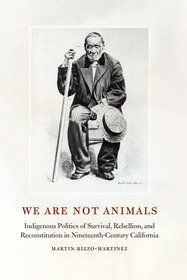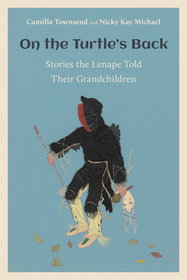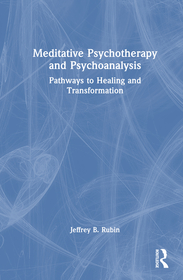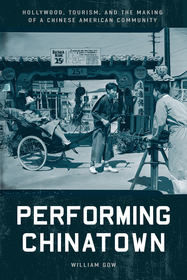
We Are not Animals
Indigenous Politics of Survival, Rebellion, and Reconstitution in Nineteenth-Century California
- Publisher's listprice GBP 31.00
-
14 810 Ft (14 105 Ft + 5% VAT)
The price is estimated because at the time of ordering we do not know what conversion rates will apply to HUF / product currency when the book arrives. In case HUF is weaker, the price increases slightly, in case HUF is stronger, the price goes lower slightly.
- Discount 20% (cc. 2 962 Ft off)
- Discounted price 11 848 Ft (11 284 Ft + 5% VAT)
Subcribe now and take benefit of a favourable price.
Subscribe
14 810 Ft

Availability
printed on demand
Why don't you give exact delivery time?
Delivery time is estimated on our previous experiences. We give estimations only, because we order from outside Hungary, and the delivery time mainly depends on how quickly the publisher supplies the book. Faster or slower deliveries both happen, but we do our best to supply as quickly as possible.
Product details:
- Publisher University of Nebraska Press
- Date of Publication 1 May 2024
- Number of Volumes Trade Paperback
- ISBN 9781496238757
- Binding Paperback
- No. of pages538 pages
- Size 229x152 mm
- Weight 792 g
- Language English
- Illustrations 8 photographs, 3 illustrations, 5 maps, 30 charts, index 558
Categories
Long description:
Winner of the 2023 John C. Ewers Award
Named a 2023 Choice Outstanding Academic Title
By examining historical records and drawing on oral histories and the work of anthropologists, archaeologists, ecologists, and psychologists, We Are Not Animals sets out to answer questions regarding who the Indigenous people in the Santa Cruz region were and how they survived through the nineteenth century. Between 1770 and 1900 the linguistically and culturally diverse Ohlone and Yokuts tribes adapted to and expressed themselves politically and culturally through three distinct colonial encounters with Spain, Mexico, and the United States. In We Are Not Animals Martin Rizzo-Martinez traces tribal, familial, and kinship networks through the missions’ chancery registry records to reveal stories of individuals and families and shows how ethnic and tribal differences and politics shaped strategies of survival within the diverse population that came to live at Mission Santa Cruz.
We Are Not Animals illuminates the stories of Indigenous individuals and families to reveal how Indigenous politics informed each of their choices within a context of immense loss and violent disruption.
Table of Contents:
List of Illustrations
Acknowledgments
Foreword by Amah Mutsun Tribal Chair Valentin Lopez
Introduction
Chapter 1: “First were taken the children, and then the parents followed”
Chapter 2: “The diverse nations within the mission”
Chapter 3: “We are not animals”
Chapter 4: Captain Coleto and the Rise of the Yokuts
Chapter 5: “Not finding anything else to appropriate . . . ”
Chapter 6: Genocide and American fantasies of ancient Indians
Chapter 7: “They won’t try to kill you if they think you’re already dead”
Conclusion
Bibliography
Index








